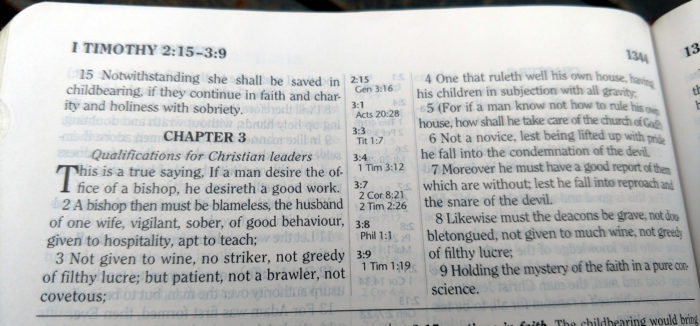Twelve Responses to Abuse Accusations in Christian Conferences, Part 2
Stop now if you haven’t seen part 1, with the first of twelve responses to abuse accusations against leaders in Christian conferences and creative fantasy writing.
This is a huge concern for fans of Christian fantastic fiction—a Publishers Weekly article that revealed four individuals accused of bad and/or abusive behavior patterns. Two of these have played parts in the Christian fantastical community.
In part 1, I offered four initial responses:
Listen to abuse victims. Don’t respond with these lines. Reconsider whether victims must “forgive” the accused. Don’t make judgments about salvation.
Let’s move onto the next four responses. Following these, however, I’ll share some bonus content in response to concerns raised over the weekend after part 1.
5. Don’t treat a conference or Christian group like a church.
This theme is worth an article or series all on its own. But Christians need to avoid treating an organization run by Christians, such as Lorehaven, or a group with a name like the X Christian Writers Conference, as if it’s the same as a local church.
They’re not.
To review, a local church has biblical teaching/preaching, regular meetings (weekly on Sundays is good), and a kind of membership (the more official, the better).1 A church is chiefly interested in training Christians for their real-life journeys of worshiping Jesus and becoming like Jesus and sharing the gospel anywhere.
Whereas a Christian writers’ conference, while often run by Christians, is chiefly interested in teaching about the craft of writing and the industries of publishing.
This means a Christian-run group can hire or fire staff based on some factors that relate to biblical truths. They might ask the staff writer to give verbal or documented assent to a faith statement. (SpecFaith and Lorehaven Magazine do this.) They might have ethical standards based on biblical expectations for the professing Christian. They also might take into account whether the person is skilled at their craft, or has sold such-and-such many copies, or has a proven record of volunteerism.
But it’s not the Christian group’s job to play church. They can’t discern a person’s real faith, or counsel weak members, or mediate disputes like a pastor can (or should). It’s their job to be Christians who glorify Jesus as best they can, while wearing other hats, like “publisher” or “conference director” or “author.”
Therefore, if a Christian writer/author is reputably accused of terrible and abusive behavior, then it’s perfectly within a Christian group leader’s rights to say, “You’re off the team” to protect the organization’s integrity. They needn’t play by Matthew 18 rules (Matthew 18 talks about a last-ditch appeal to church elders, not Christian leaders in other contexts). And they don’t enforce local church membership rules.
To be sure, this has some side effects, like the chance of hearing silly teaching, or flat-out ridiculous heresy, at an event labeled “Christian.” That’s where we practice wisdom, and make sure to carry different expectations for a Christian church versus a Christian-run group or conference or company or anything else.
6. Encourage all Christian leaders to act ‘above reproach.’
That being said, Christian groups/conference leaders/etc. would do well to make their faculty decisions based on clear and specific communication with a faculty member’s local church. They may also require that person to follow the baseline ethical requirements from the apostle Paul’s rules for biblical pastors:
The saying is trustworthy: If anyone aspires to the office of overseer, he desires a noble task. Therefore an overseer must be above reproach, the husband of one wife, sober-minded, self-controlled, respectable, hospitable, able to teach, not a drunkard, not violent but gentle, not quarrelsome, not a lover of money. He must manage his own household well, with all dignity keeping his children submissive, for if someone does not know how to manage his own household, how will he care for God’s church? He must not be a recent convert, or he may become puffed up with conceit and fall into the condemnation of the devil. Moreover, he must be well thought of by outsiders, so that he may not fall into disgrace, into a snare of the devil.2

“He must have a good report of them which are without” (1 Timothy 3:7, KJV).
Lest we assume this is some kind of super-spiritual Christian Leader’s Guide, read again and think again. This stuff is basic. Overseers—that is, church leaders—must be above reproach. You can’t even get legitimately tagged with nasty accusations. Be committed to your spouse. Be serious and respectable. Control your impulses. Be able to teach. Don’t get drunk. Don’t be quarrelsome (this is especially necessary in our volatile social-media age). Don’t be a greedy jerk. Be a good parent. And don’t be a potentially arrogant newbie to the job who has a bad rep with the world.
Any Christian, leader or not, ought to strive to follow these requirements as the minimum standard for above-reproach biblical character and ethics.
Any Christian who fails at them, especially regularly, isn’t qualified to act as a leader in any Christian-run conference, nonprofit, or other group. It’s a most loving action to send such a person away from the group leadership and back to gospel basics—and, we can hope, this means back to the local church, where qualified overseers can walk him through an official, biblical process of repentance and restoration.
7. Don’t reject all the accused person’s creative work.
Remember when Bill Cosby was reputably accused by several women, not just of harassing them but of far worse actions? Suddenly, everyone wasn’t sure how to view those old The Cosby Show episodes. Are they now “tainted”? Should they be pulled from network reruns or streaming services? (One service did pull it.)
Someone asked me how he might respond, now, to the novels or other creative work of a Christian who is accused of abusive behavior. Is this work “tainted”?
My partial thought: yes, it’s possibly “tainted.” But not so much like it’s infested with spiritual “germs.” It might be more like the “meat sacrificed to idols” that Paul spoke about (1 Cor. 8–10), whose danger is not based on fake god-characters with actual power, but on the weak conscience of the person who associates the meat with someone else’s sinful behavior (in this case, the book’s creator). Thus, if you feel personally betrayed by a book author, it might be best to put it away for a while.
However, you could also choose to redirect your praise. Yes, our Creator gave that person—later accused of abuse—his talents. So trace your gratitude back to God for seeing fit to allow us to have that great story, or TV show, or other creative work. The biblical doctrine of “common grace” means that God lets his sun shine on the evil and righteous alike (Matt. 5:45), and that even evil people know how to give good gifts to their children (Matt. 7:11). Jesus doesn’t have a problem calling people evil but acknowledging they do good things. Thus, in theory, neither should we.
8. Don’t totally ‘shun’ the person reputably accused of abuse.
All this next goes wholly for other people involved in the situation, who know someone reputably accused of power-abuse, but have not themselves suffered.
For those who have suffered, they should keep separate from the abusive person for a time—perhaps even for all this life. Yes, in the best-case scenario, abuser repents and the victim forgives, leading to reconciliation, before they die. But in a sinful age, that’s not always possible. Just as some Christian people may always struggle with abusive behavior, victims may always struggle with the pain.
Now, what about others who know what’s going on and know both parties? Should we join any kind of “mob” solely on the victim’s side? Cut off the accused person? Act like that man will always remain outside the grace of God for eternity?
No, no, and no.
Even in a situation of official disfellowship, the apostle Paul did not command the Corinthian church to shun a man who was shacking up with his father’s wife (1 Cor. 5). Paul said that, after a process of pleading with this person, the church should:
“… deliver this man to Satan for the destruction of the flesh, so that his spirit may be saved in the day of the Lord. … Purge the evil person from among you.”3
Paul doesn’t say “never speak to him again.” He doesn’t say “hide yo kids, hide yo wife.” He doesn’t advocate anything like the practice of “shunning,” or the nasty response of a cult that won’t even allow member families to talk with a family member who has rejected the false teaching. Instead, the unrepentant offender was simply not allowed to participate in local church gatherings. That’s for his salvation. If they kept letting him participate, they would be telling him a lie: “It’s all good.” However, that does not mean they could not get together with him on their own. Or say hello in the market (while shopping for meat-not-sacrificed-to-idols).
Of course, if we’re not part of any local-church discipline project, our situation may be different. Still, the general principles apply. I would not automatically “unfriend” anyone accused of power-abuse. I would not go out and try to sabotage his work. In fact, I might keep in friendly touch, and thereby remain a voice who can encourage this person to pursue holiness, repent when needed, and commit to a local church.
If we who are strong don’t do this in love and service to those accused of abusive behavior, who will? Christ saves far worse figures—even the apostle Paul himself.
Tomorrow, we’ll wrap this very challenging series with some thoughts about avoiding such abuse problems in the future.
Bonus content: responses to comments, complaints, questions
Below, I’ll respond to concerns raised after the first part’s release on Friday.
“What about false accusations?”
Earlier versions of this article (originally a single piece) included a partial response to this real threat: that some people will falsely accuse someone of power-abuse and/or sexual harassment.
However, I chose to remove that part in order to stay focused on this topic.
In this series, I’ve chosen to focus only on the challenge of reputable accusations that certain people have been witnessed committing a pattern of abuse and harassment against more than one individual. This means the kind that we saw in the Publishers Weekly article. This also means the kind that have already been verified by two or three witnesses. So the topic of false accusations, such as by a single individual, is a valid topic to explore, but it’s outside of my scope here.
“Etc. etc. Judge Brett Kavanaugh etc. etc.?”
I’m also not commenting on current national-level controversies that involve political figures. I would point out, however, that in that case, we have only one person who has accused someone of a single offense.4 Wisdom calls for careful evaluation of this kind of claim, because the accused person can have so much power and influence. However, I think Scripture has good reason to insist that claims against anyone must include more than one witness:
“A single witness shall not suffice against a person for any crime or for any wrong in connection with any offense that he has committed. Only on the evidence of two witnesses or of three witnesses shall a charge be established.”5
“If your brother sins against you, go and tell him his fault, between you and him alone. If he listens to you, you have gained your brother. But if he does not listen, take one or two others along with you, that every charge may be established by the evidence of two or three witnesses.”6
Do not admit a charge against an elder except on the evidence of two or three witnesses.7
“Your language sounded secular here, and here, and here.”
Yes, I’m aware that some people make associations between, for example, the phrase “abuse of power” and secular, or anti-Christian, conceptions of what this means. That’s not how I’m using this phrase. Note that in part 1, I clearly stated that I’m talking about original sin that’s common to all persons. Humans, as a rule, have abused their God-given power to rebel against him.
I’m not referring to some “feminist” notion that only one group—such as men—have all the power, so any time you oppose them, you’re on the side of the angels. We can talk about that some other time. Here, again, I’m focusing.
“But someone could use XYZ thing that you said to sin.”
Other doctrines that can be hijacked for sin include: the Trinity, God’s written word, Jesus’s humanity, Jesus’s divinity, biblical calls for influencing the world for justice, biblical calls for the church emphasizing gospel missions, common grace, total depravity, the cultural mandate, Heaven, Hell, repentance, forgiveness, angels, demons, spiritual warfare, eschatology …
To sum: “someone could use that truth to sin” is not even a valid objection.
“But the article didn’t count as a real investigation.”
Although I’m referring to the original Publishers Weekly article, my goal is to write this series so that it would hold up even if an angel descended from Heaven and told us we’d got it all wrong about the innocent Person X.
I also hasten to point out that, with the original folks named in the article, most folks on the internet are catching up to this late. Unlike, say, a Twitter war, provoked by a single person’s spurious claim and taken up by a social-media mob, these online conversations are the echo. People involved—in conferences, and I hope among churches and friends of the victims and accused—have already begun doing their thing, in some cases months ago.
- You can read more about the biblical mission of the local church at 9Marks.org (PDF). ↩
- 1 Timothy 3: 1–7. ↩
- 1 Corinthians 5: 5, 13. ↩
- This sentence was true at the time that I wrote it. By Monday morning, however, another accuser had come forward. ↩
- Deuteronomy 19:15; emphasis added. Speaking for Yahweh, Moses goes on to instruct, “If a malicious witness arises to accuse a person of wrongdoing, then both parties to the dispute shall appear before the LORD, before the priests and the judges who are in office in those days. The judges shall inquire diligently, and if the witness is a false witness and has accused his brother falsely, then you shall do to him as he had meant to do to his brother. So you shall purge the evil from your midst. And the rest shall hear and fear, and shall never again commit any such evil among you. Your eye shall not pity. It shall be life for life, eye for eye, tooth for tooth, hand for hand, foot for foot” (Deuteronomy 19: 16–21). Christians must take care with this text, especially given our culture’s civil and spiritual differences with God’s original covenant people. I only emphasize here that God’s word makes provision for false claims. ↩
- Matthew 18: 15–16; emphasis added. Note that Jesus speaks here about someone responding to personal offenses. He does not directly address far more serious matters, such as accusations of abuse, public teaching of false doctrine, or other acts that are not a matter of private offense but are a public health risk to Jesus’s church. ↩
- 1 Timothy 5:19; emphasis added. In verse 20, the apostle Paul goes on to say, “As for those who persist in sin, rebuke them in the presence of all, so that the rest may stand in fear.” A person, who professes the name of Christ, cannot make a practice of sinning without his claim being called into question (1 John 3:9). If people do “persist in sin,” a local church must “rebuke them” in public. Fear of consequences is a proper motivator for serial abusers and sin-persistent Christians. ↩









































Appreciate this thoughtful article, Stephen, and your “bonus” answers to the objections raised to Part One.
Just one question in regard to your comment about shunning: “However, that does not mean the [Corinthians] could not get together with [the man who had his father’s wife and was put out of the church] on their own. Or say hello in the market (while shopping for meat-not-sacrificed-to-idols).”
How does this fit with 1 Cor. 5:11, which lists a number of serious sins committed by professing believers and clearly says that not only must Christians not “associate” with such people, we should “not even eat” with them?
* * *
Getting back to the Christian conference situation, though, which I agree is not the same as a church and doesn’t operate by the same principles — I can see why it would be hasty and perhaps even unjust to shun a person for the whole remainder of a conference based on a single act of misbehaviour on, say, Friday. Until the conference organizers have looked into the matter, talked to any witnesses, and decided what kind of response is appropriate, it’s not fair to treat the accused person as though they’re already convicted.
However, if a man (or woman for that matter) has behaved sinfully on multiple occasions before that particular conference, and no disciplinary action has been taken, it may be wise for those aware of the problem to warn others about that person. As part of the children’s literature community, which has recently gone through its own struggles in this area, I know that sometimes the only thing that protects newcomers from being exploited by a long-time predator in a position of power (such as an agent, a publisher, or an award-winning author/illustrator who likes to take conference attendees under their wing and “mentor” them in hopes of gaining sexual favors) is the “whisper network” of those have witnessed or personally experienced that person’s misbehaviour and are anxious to protect others from suffering the same fate.
Some may say that this kind of warning falls under the heading of gossip, but I don’t believe that it does. Gossip is done carelessly and/or with malicious intent, and often betrays information that people have legitimate reasons to keep private. Whereas warning is about protecting the unwary from predators, who are relying on people’s ignorance to exploit them. And if no disciplinary action has been taken yet, that “whisper network” may be the only hope that a new or uninformed attendee has of not becoming the predator’s next victim.
Great article, I appreciate your points, even the bonus stuff.
That’s true even though I happened to be the person who pointed out that the Publisher’s Weekly article could be produced without them engaging in any real investigation. Though I also said an investigation could have happened, a PW article isn’t proof that one did.
Yes, I appreciate that wheels have been rolling for a while on these things, but I felt it was important to mention to people that unless someone has considerably more information than what I’ve got, we shouldn’t presume we really know for certain what happened. If feel that’s simply fair and just.
But yes, I agree the content of your article holds up well under all and any circumstances. Kudos on that.
I happen to know that that PW article included nearly exhaustive investigation.
Oops, that didn’t sound right. It was an exhaustive investigation that took many, many hours, calls, lawyers, rewrites, etc.
Ok, Mary, how do you know that? Please share if you can.
By they way, I have previously heard someone tell me that. When I asked how he knew, he said, “Someone who knows more that me told me,” without telling me who. For me, him telling me that he knew someone who knew is not verifiable or reliable information–even though the person who told me this is someone I like and trust–because human beings make mistakes and spread false information too easily.
In principle, a reputable media publication will take great care publishing the names of someone accused of this kind of behavior. This covers them legally as well as ethically. Exceptions, of course, include severely biased media and/or super-high-profile figures in actual or potential positions of power. (What was that guy’s name in the news? … Some kind of judicial position?) In this case, I think it’s worth noting that Publishers Weekly has given all kinds of press, all friendly from what I’ve seen, to books by two of the accused persons. That, to me, seems another point in favor of them not simply going out for slanders.
E. Stephen, I’ve already addressed the issue that the kind of story PW ran pretty much only requires that PW make certain the names were right and the accusations were real. That isn’t the same as a real investigation, though more info may be known.
In fact more information WAS known, as some comments by Anne Byle on the Speculative Faith Part 1 post made clear. She said these comments in just the past 12 hours or so, which I saw just a few minutes ago for the first time.
So I retract everything I have said stating that the publication of the article perhaps was not significant. It seems Publisher’s Weekly indeed did do more research than the minimum. Note I stated I thought it might be possible they had done more, but now it’s been made plain that they did. Which is good to know.
Fair enough. I also did some checking and heard from plenty of people that even that article had left out many details.
If I had a character making arguments against the existence of God I would want them to sound good. Unless the person was known to be a crank. But a knowledgeable professor should sound knowledgeable and have more than straw man arguments to offer.
The dialogue would sound pretty secular. I read about a vicar who complained to the magazine serializing The Screwtape Letters. He asked them to cancel his subscription since “many of the suggestions offered are erroneous if not downright diabolical.”
Hi, Rachel; did you mean to make your comment on this particular article? 😀
Stephen, thank you for writing these articles. They are well-researched and thoroughly grounded in scripture. (by researched, I mean biblical research). They have clearly taken a great deal of effort, and, I imagine, emotional challenge.
Like everyone, I’ve been shocked and very saddened by recent events. I’ve said next to nothing online about it. Partly because of my geographical distance, having never met another Realmie in person, but mostly because I’m still thinking through what I think, and how to react to it all.
Your writings here have definitely helped me in my process and have probably even pulled me out a little of the naivete you described in point 10.
So thanks again. The articles can’t have been easy to write, but I believe that they, and the discussion that has followed them, are a great resource during these troubling times.